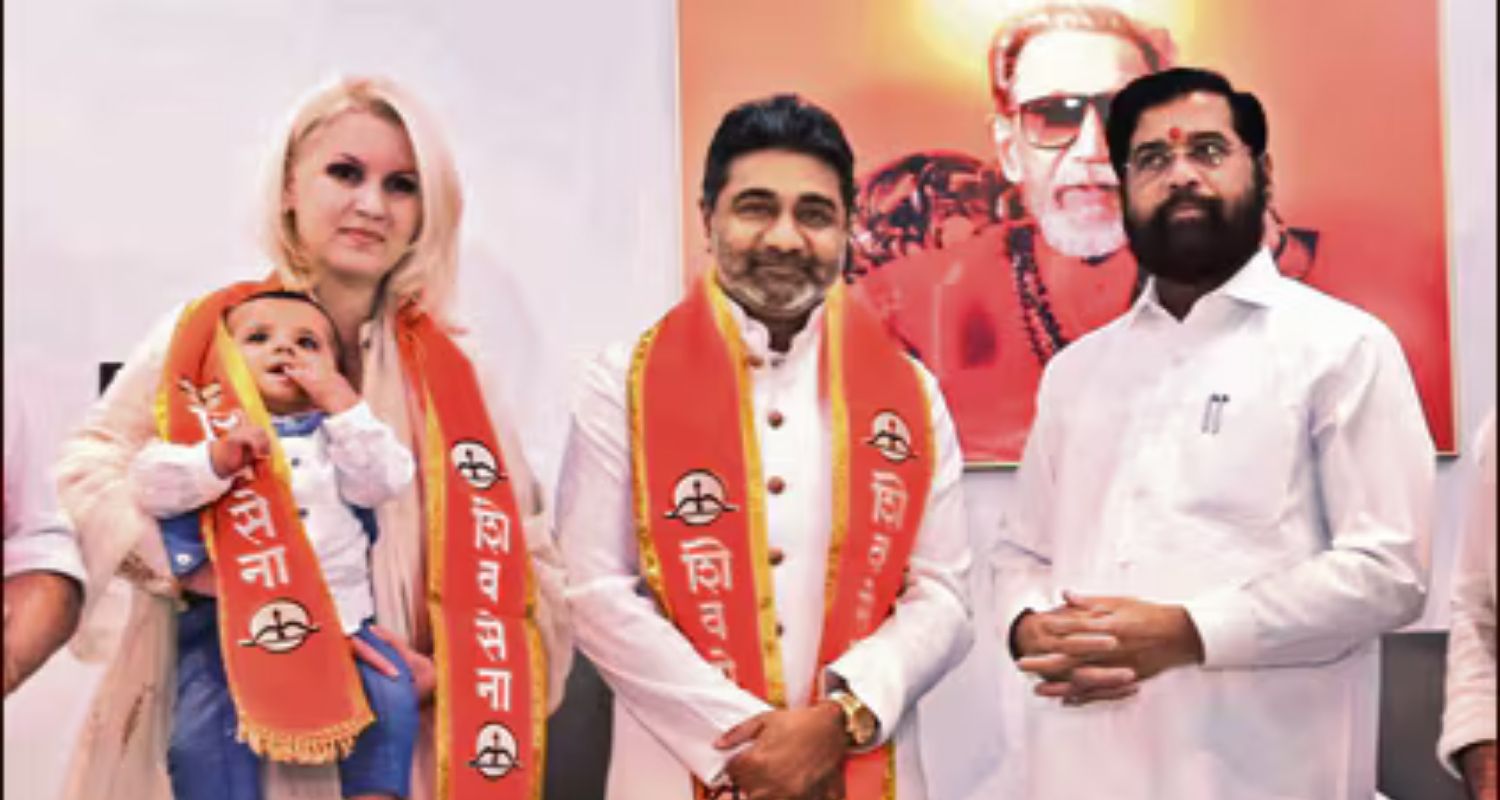In what appears to be a strategic move to extend the Shiv Sena’s influence beyond Maharashtra and establish it as a national political force, party leader and Deputy Chief Minister Eknath Shinde is reportedly spearheading an ambitious expansion plan. To lead this effort, Shinde has appointed Abhishek Verma, a figure with a controversial past, as the national convener for alliances and expansion.
Verma, who gained notoriety as India’s youngest billionaire at age 29, featured on a national daily in November 1997, is said to have presided over a global business empire spanning defence manufacturing, aerospace, nuclear energy, and advanced technologies across India, Europe, Russia, and the Middle East.
Shinde is currently engaged in a legal battle with Uddhav Thackeray over the allocation of the Shiv Sena’s party symbol, which the Election Commission has awarded to Shinde’s faction. However, the final decision remains pending in the Supreme Court. Sources suggest Shinde recognises the critical need to elevate his organisation to national party status to bolster his political relevance.

Historical precedents, such as Sharad Pawar’s Nationalist Congress Party (NCP) achieving national recognition with Congress support—though it later lost this status—indicate that such a transition is possible but challenging.
The Shiv Sena, known for its early adoption of the Hindutva agenda under Balasaheb Thackeray, who coined the slogan “Garv se kaho hum Hindu hain” in the early 1970s, is reportedly looking to leverage this ideology to expand its footprint. This slogan has since become a cornerstone of the Bharatiya Janata Party (BJP), founded in 1980.
Questions arise about Shinde’s motivations for taking the Shiv Sena beyond its traditional Maharashtra base, given its regional chauvinistic identity, and why he has chosen Verma for this role. There is also speculation about how this expansion might affect the Shiv Sena’s strong alliance with the BJP, which leads the National Democratic Alliance (NDA) and champions the Hindutva agenda.
Shinde reportedly envisions the Shiv Sena as a complementary force to the BJP, particularly in regions where the BJP has struggled to gain traction or requires a robust ally. Achieving national party status, which requires securing a sufficient percentage of votes in multiple states as per Election Commission criteria, would grant the Shiv Sena benefits like a common election symbol across states. The party is said to be targeting the Hindi heartland, the Northeast, and smaller states like Goa to build its presence.
A party leader reportedly described the relationship with the BJP, saying, “We are like two brothers staying in the same house with a common entrance but separate kitchens,” suggesting a cooperative yet distinct partnership.
Verma’s appointment is reportedly strategic, given his Central Indian roots and his family’s deep political legacy. His father, Shrikant Verma, was a Congress general secretary and two-term MP, while his mother, Veena Verma, served as a three-term MP. Both of his grandmothers were also elected multiple times to the Lok Sabha from Madhya Pradesh and Uttar Pradesh.
Also Read: Eknath Shinde's X handle hacked with Pak-Turkey flags
Verma is said to have fully committed to Hindutva politics, taking up causes like Gau Raksha (cow protection) and reportedly earning endorsements from a section of the Rashtriya Swayamsevak Sangh (RSS) and prominent spiritual leaders. Swami Nritya Gopal Das Maharaj, chairperson of the Shri Ram Janmabhoomi Teerth Kshetra Trust in Ayodhya, has allegedly declared Verma a “Sanatan Yoddha” while extending his support. Additionally, Jagadguru Swami Rambhadraacharya, a revered spiritual scholar, is said to have felicitated him for his new role.
Verma has reportedly begun his efforts in Uttar Pradesh, engaging with the Nishaad Party to explore avenues for expanding the Shiv Sena’s influence without disrupting its alliance with the BJP. His political foray follows his reported exoneration by courts in cases filed against him during the Congress regime, which his supporters claim were driven by personal vendetta rather than evidence.
Verma, along with his wife, Anca Verma, is said to be actively involved in promoting the Shiv Sena’s message. Anca reportedly represented him at the stone-laying ceremony of the Kalki temple in Sambhal, Uttar Pradesh, alongside Vishva Hindu Parishad president Alok Kumar and Shankaracharya Sadananda Saraswati.
Also Read: Raj-Uddhav tie-up driven by politics: Shrikant Shinde
While pursuing Hindutva as the core agenda, Shinde is reportedly mindful of maintaining a secular image. Sources indicate that he provided financial relief to the family of a Muslim victim of the Pahalgam attack and promised to support the construction of their house.
In Maharashtra, Shinde is said to be focused on consolidating his position against the Thackeray faction, while simultaneously seeking to demonstrate the Shiv Sena’s ideological appeal in other regions. For instance, a Bengali activist in Kolkata, reportedly one of the original Shiv Sainiks from 1966, is said to be backing Shinde’s efforts.
The success of the Eknath Shinde-Abhishek Verma strategy to elevate the Shiv Sena to a national party remains uncertain, and only time will reveal whether this ambitious plan will yield the desired results.
Also Read: Uddhav Thackeray, Shinde to hold rival Dussehra rallies



